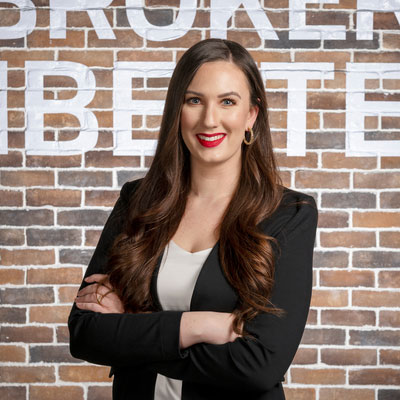When the Association of Independent Mortgage Experts (AIME)’s CEO Katie Sweeney established Broker Action Coalition (BAC) – AIME’s grassroots network that initiates communications between mortgage brokers and their legislators – in 2022, it was initially to gauge the industry’s appetite for advocacy and reform.
“Part of the goal of the association was to make sure that we were diversifying our areas of focus and creating influence across the industry in a variety of spaces, with advocacy being the last one that AIME as a whole had never really tackled,” Sweeney said in an interview with HousingWire on Tuesday.
“And it has just taken off like crazy. We have been spending more and more time over the last 18 months focused on the work in Washington, D.C., on industry accountability, on product reform where we really just found ourselves and me, in particular, trying to split time between two organizations that deserve full-time attention,” added Sweeney.

There was no separate leadership group within BAC. Sweeney and Brendan McKay, former AIME President of Advocacy, have been overseeing the work.
To focus exclusively on public policy advocacy and political activities on behalf of the industry, Sweeney will be stepping down as Chairman and CEO of AIME on March 31, 2024, to become the co-founder and CEO of BAC.
A newly launched selection committee will be in charge of appointing AIME’s new CEO.
McKay will become chief advocacy officer, focusing on growing the advocacy network’s members, donors and programs.
Under Sweeney’s leadership, BAC will step up efforts to raise and manage funds for the Broker Action Coalition PAC (BACPAC) – the political action committee launched in 2022 by Sweeney that collects contributions to support bipartisan public policy initiatives that benefit independent brokers and their clients.
Broker Action Coalition’s top issues
The coalition will continue its efforts on passing the disabled veteran tax exemption bill this year. In 2023, BAC’s focus was on the disabled veteran tax exemption bill on the state level.
The bill – which allows 100% permanent and total disabled veterans to apply for real estate tax exemption before taking ownership of a home – is aimed at increasing homeownership among disabled veterans. States including California, Virginia and Utah have passed the bill last year.
On the federal level, BAC’s priority is putting efforts around the trigger lead reform.
A trigger lead is where consumer credit reporting agencies share with other lenders that a hard credit report was pulled for a mortgage application. This can lead to an onslaught of calls to that consumer vying for their lending business.
“Both the House bill and the Senate bill were introduced at the end of 2023. We’ve really been focusing in that space to make sure that we get trigger lead reform pushed through before this Congressional session is up at the end of 2024,” said Sweeney.
In December 2023, a coalition of bipartisan lawmakers in the Senate introduced Homebuyers Privacy Protection Act (S.3502) to amend the Fair Credit Reporting Act (FCRA) to prevent consumer reporting agencies from furnishing consumer reports under certain circumstances.
As of Dec. 13, the act was referred to the Committee on Banking, Housing and Urban Affairs, which will need to approve the measure before it can come to the Senate floor.
The House of Representatives introduced Protecting Consumers from Abusive Mortgage Leads Act (H.R. 4198) in June 2023 which also targets the trigger lead practice.
Other regulatory issues that the coalition wants to tackle include the third-party originated (TPO) surcharge imposed by the Federal Housing Finance Agency (FHFA), Fannie Mae and Freddie Mac.
AIME has been working to roll back the 15-basis point FHFA TPO surcharge that adds 15 bps charge on all TPO mortgages that nationwide direct lenders and big banks do not have.
The advocacy group claims that the pricing discrepancy mostly directly impacts local mortgage originators.
“We worked very hard last year to pull an independent case study together that proves that brokered loans are not inherently riskier than any other origination channel. So now we’re working directly with some of the regulators and agencies to try to understand why they’re being taxed essentially more than any other loan originated in another channel,” Sweeney said.
Among the 65,000 members of AIME, BAC was able to engage more than 50,000 AIME members, added Sweeney.
In the third quarter of 2023, the broker channel accounted for just above 16% market share with retail at 55% and correspondent at 29%, according to an Inside Mortgage Finance‘s (IMF’s) analysis of first-lien mortgage originations.
Brokers originated $62 billion in Q3, both down from the previous quarter’s $67 billion and $81 billion in Q3 2022.




